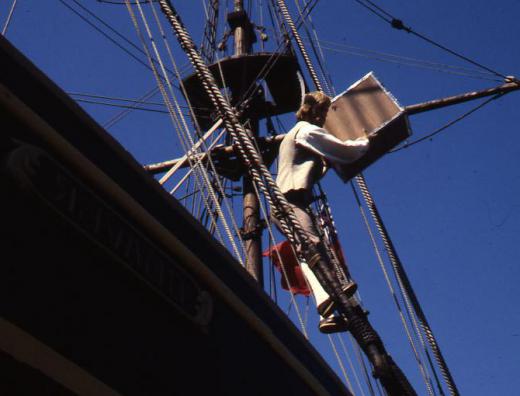At UnitedStatesNow, we're committed to delivering accurate, trustworthy information. Our expert-authored content is rigorously fact-checked and sourced from credible authorities. Discover how we uphold the highest standards in providing you with reliable knowledge.
What is the Treaty of Paris?
The Treaty of Paris is the agreement between the Kingdom of Great Britain and its 13 former colonies in North America, now known as the United States of America. Signed on 3 September 1783, the treaty officially brought an end to the American Revolutionary War, which began years earlier in 1775 in the battles of Lexington and Concord. It was ratified on 14 January 1784 by the Congress of the Confederation, the legislative and executive authority of the United States and approved by King George III of England on 9 April 1784. One month later, the two signed documents were exchanged via dignitaries in Paris, giving rise to the name.
Representatives of the United States and the British government met in Paris at the Hotel d'York near the British Embassy. Americans in attendance were John Adams, Benjamin Franklin and John Jay. The British Parliament sent David Hartley. Although not officially part of the Treaty of Paris, American Revolutionary War diplomacy included representatives from France, Spain and the Dutch Republic, which had taken the opportunity to join the conflict on the side of the Americans. Separate peace treaties were established between the British and each of these nations.

The 13 colonies rebelled against their parent empire beginning in the early 1770s. Simple acts of civil disobedience such as the Boston Tea Party soon were replaced by full scale war in 1775. In a push for independence, the American Revolutionary War was ultimately unsustainable for the British in both cost and manpower. After nearly a decade of conflict, the British Crown was forced to find a political solution that satisfied the newly-formed United States and its allies.

The Treaty of Paris contained a number of different provisions that established the rights of the new nation in the eyes of the British and the world. According to the preface, the agreement was approved by the will of God. It was designed to reset relations between the two nations and secure a permanent peace. Despite the intentions of the treaty, however, many of the factors not included in the arrangement ultimately led to the War of 1812.

First, the treaty determined that the British Crown was to acknowledge the independence of each of the states. It also needed to relinquish any claims to territory within the boundaries of the new country, which were settled to include the continued existence of Canada. The Treaty of Paris also gave fishing rights to the United States off the coast of Newfoundland and throughout the Gulf of Saint Lawrence. In addition, the dignitaries agreed to allow access to the Mississippi River for both the British and the Americans.

In return for these provisions, the new government agreed to return land and property to Loyalists who had supported the Crown. All property still belonging to British subjects and the military was to be turned over without damage. This included slaves. Both sides agreed to pay off debts to private enterprise regardless of nationality. In addition, all prisoners of war were to be released.
AS FEATURED ON:
AS FEATURED ON:

















Discuss this Article
Post your comments